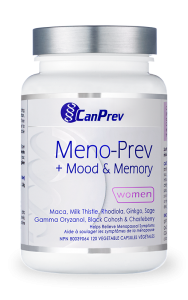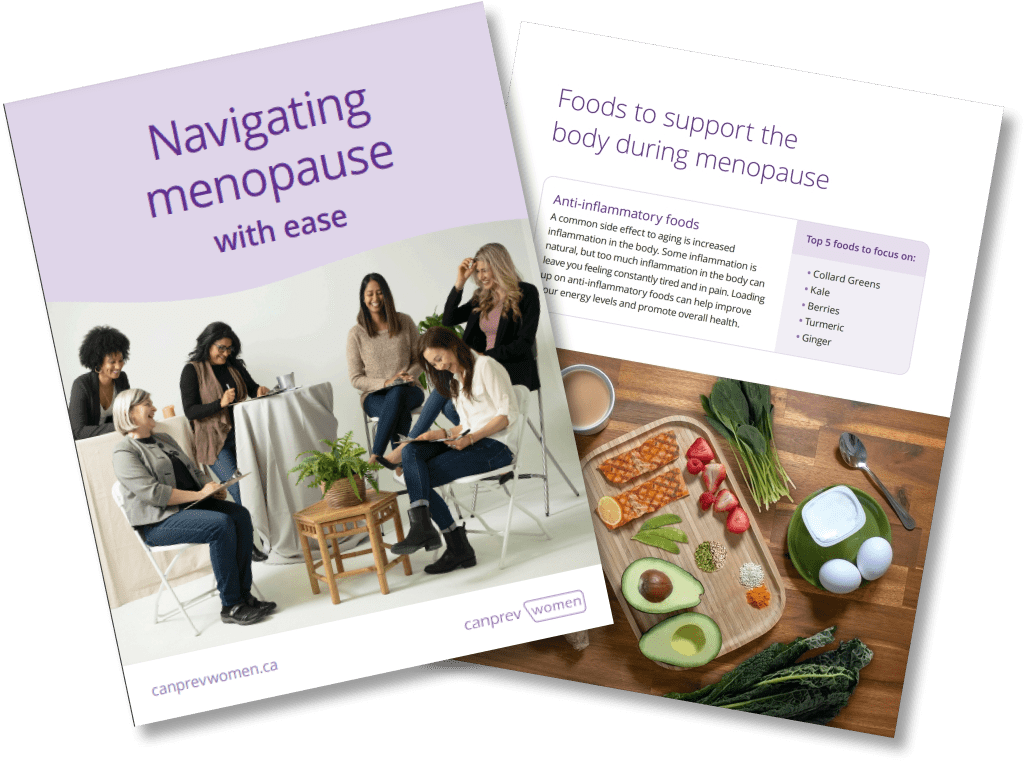Say it ain’t so! Are you experiencing both menopause and acne at the same time? If you thought acne was associated with adolescence, you’re partly right. The type of acne likely to occur during puberty as well as during menopause is known as hormonal acne, and as the name suggests, it is linked with hormone fluctuations. Read on for what you need to know about managing menopausal acne, including lifestyle factors, nutrition tips, and supplement recommendations.
Why am I getting acne during menopause?
During menopause, hormone levels are shifting dramatically. Menopause is a natural biological process that usually starts between the ages of late 40s to early 50s for most women, and is divided between three stages.
Stage one is perimenopause, which unfolds while menstrual cycles become irregular and more spaced out. Perimenopause can last for many years for some women. The second stage, menopause, lasts about one year from the time of the last menstrual period until year one period-free and marks the end of the reproductive years. The third stage is postmenopause, when women settle into a new phase of their life.
Hormonal imbalances & menopausal acne
High androgens and low estrogen can contribute to menopausal acne. Women with a history of PCOS (polycystic ovary syndrome), obesity, or metabolic syndrome are at a higher risk of menopausal acne due to a propensity of hormone imbalances. Many factors can cause hormonal imbalances, including stress and insulin resistance. The good news is: lifestyle, diet and supplements can help! Interested in how to treat menopausal acne naturally? Read on for our expert tips.
Nutritional recommendations
Keep your blood sugar in check to support hormonal health, and to help avoid or manage menopausal acne flare-ups. That includes consuming lots of fibre, high-quality protein, antioxidant-rich colourful foods, enough good fats, and loading up on liver-supporting herbs like milk thistle, a natural source of silymarin. A flavonolignan, silymarin has been shown to possess potent liver-protecting benefits, while also acting as an antioxidant and anti-inflammatory to help reduce inflammation in the body, which can further disrupt hormone levels.
 Put the rainbow on your plate! Reach for dark leafy greens, bright berries and colourful aromatic spices. Here are some hormone-balancing foods to get you started: apples, blueberries, spinach, kale, beets, almonds, broccoli, flaxseeds, green tea.
Put the rainbow on your plate! Reach for dark leafy greens, bright berries and colourful aromatic spices. Here are some hormone-balancing foods to get you started: apples, blueberries, spinach, kale, beets, almonds, broccoli, flaxseeds, green tea.
Avoid excess salts, sugars, processed foods, and refined oils and fats. Load up on healthy fats and oils, especially essential fatty acids like Omega-3s. It can be found through foods like avocados and wild-caught salmon.
Lifestyle factors
 Stress, and lack of sleep and rest can contribute to aggravate hormonal imbalances and symptoms of menopausal acne. Adaptogenic herbs with calming and stress-relieving benefits can help soothe tension and encourage rejuvenation, that in turn helps to smooth out hormonal peaks and drops. Beneficial plant picks during menopause include the adaptogens – rhodiola and maca. These plants, along with other important hormone-supporting ingredients like milk thistle, gingko biloba, sage, black cohosh and chasteberry (also known as vitex, and one of women’s most trusted herbal allies!), are found in Meno-Prev, an all natural formula for menopausal symptom relief.
Stress, and lack of sleep and rest can contribute to aggravate hormonal imbalances and symptoms of menopausal acne. Adaptogenic herbs with calming and stress-relieving benefits can help soothe tension and encourage rejuvenation, that in turn helps to smooth out hormonal peaks and drops. Beneficial plant picks during menopause include the adaptogens – rhodiola and maca. These plants, along with other important hormone-supporting ingredients like milk thistle, gingko biloba, sage, black cohosh and chasteberry (also known as vitex, and one of women’s most trusted herbal allies!), are found in Meno-Prev, an all natural formula for menopausal symptom relief.
Here are additional lifestyle habits to include:
- Keep a healthy weight & continue to exercise regularly
- Limit smoking, alcohol, and caffeine consumption
- Cover your bases with trusted supplements (think magnesium, calcium, vitamin D & K, and a daily multivitamin for women).
Caring for your skin in menopause
Managing menopausal acne and general care for skin health during menopause requires a change in habits along with daily care and attention. While acne during the teenage years might respond well to topical treatments, like drying agents and lotions that decrease sebum production and help clear up oily blemishes, a different approach is warranted during menopause.
A decrease in estrogen production during the menopausal years make the skin more dry and prone to sagging. As estrogen levels drop, so does collagen. That’s why you want to avoid conventional acne products formulated for teens that often have harsh during effects.
What can you do instead? During menopause, you can care for your skin from the inside out.
- Increase your intake of essential fatty acids
- Rely on a trusted, high-quality collagen supplement like Collagen Beauty, available in both liquid or powder. This formula has been shown to increase moisture in the skin, improve skin elasticity and appearance, and reduce wrinkles in just 28 days.
- Pair your collagen supplement with silicon for increased absorption and skin health benefits.
And aside from nutrition and supplements for healthy skin during menopause, other skin health habits to adopt include rest, play, hydration, a commitment to emotional wellness, and a balanced life. Menopause is a time of reinvention and self-care – enjoy it!
Curious to learn more about menopause? Head over here to understand how you can better navigate menopausal symptoms.
REFERENCES
American Academy of Dermatology Association – Caring for your skin in menopause
Healthline (March 2019) – Hormonal Acne: Traditional Treatments, Natural Remedies, and More
Int J Womens Health – Menopausal Acne – Challenges and Solutions


